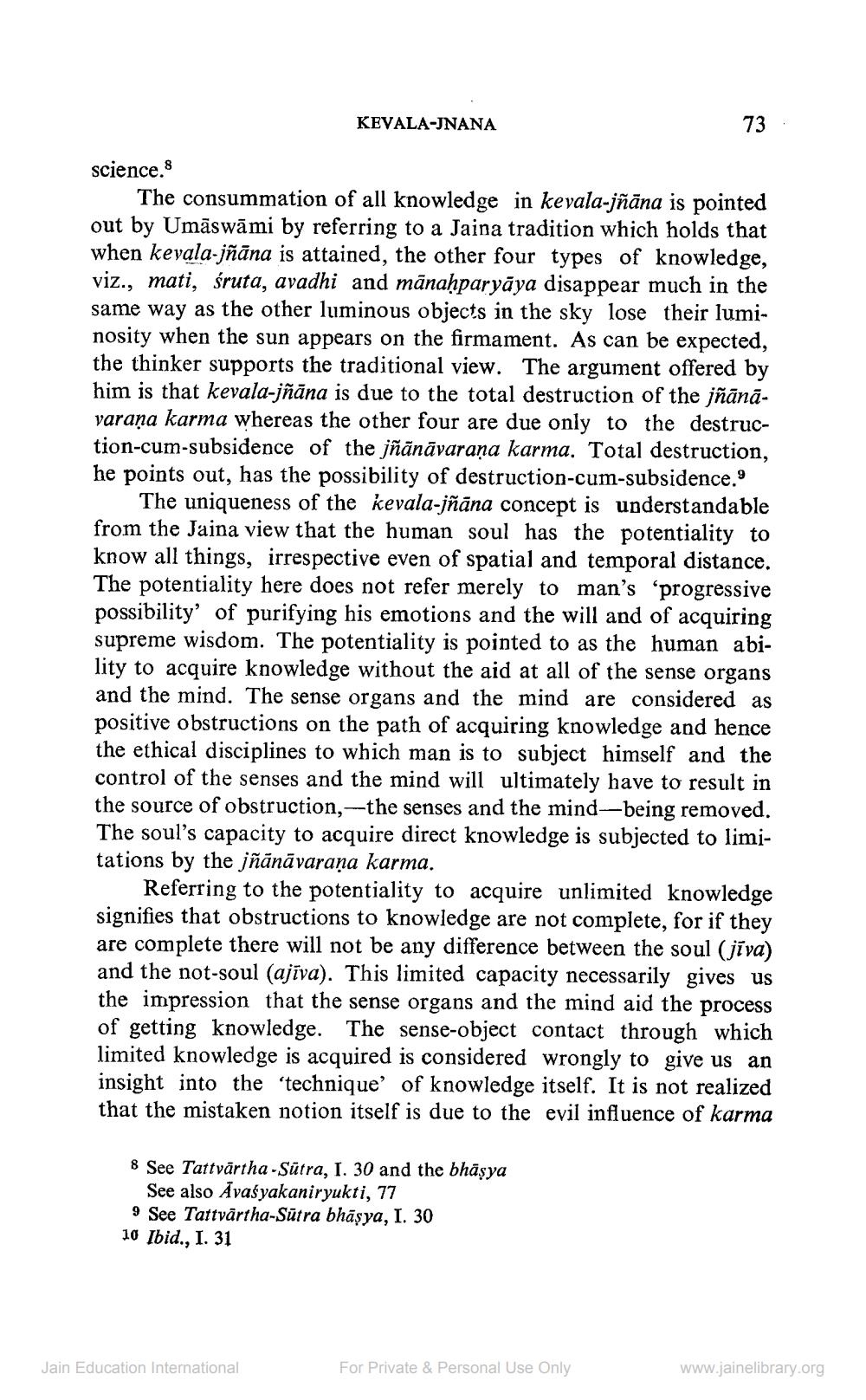________________
KEVALA-JNANA
science.8
The consummation of all knowledge in kevala-jñāna is pointed out by Umaswami by referring to a Jaina tradition which holds that when kevala-jñāna is attained, the other four types of knowledge, viz., mati, śruta, avadhi and manaḥparyāya disappear much in the same way as the other luminous objects in the sky lose their luminosity when the sun appears on the firmament. As can be expected, the thinker supports the traditional view. The argument offered by him is that kevala-jñāna is due to the total destruction of the jñānāvarana karma whereas the other four are due only to the destruction-cum-subsidence of the jñānāvaraṇa karma. Total destruction, he points out, has the possibility of destruction-cum-subsidence.9
The uniqueness of the kevala-jñāna concept is understandable from the Jaina view that the human soul has the potentiality to know all things, irrespective even of spatial and temporal distance. The potentiality here does not refer merely to man's 'progressive possibility' of purifying his emotions and the will and of acquiring supreme wisdom. The potentiality is pointed to as the human ability to acquire knowledge without the aid at all of the sense organs and the mind. The sense organs and the mind are considered as positive obstructions on the path of acquiring knowledge and hence the ethical disciplines to which man is to subject himself and the control of the senses and the mind will ultimately have to result in the source of obstruction,-the senses and the mind-being removed. The soul's capacity to acquire direct knowledge is subjected to limitations by the jñānā varaṇa karma.
8 See Tattvärtha-Sutra, I. 30 and the bhāṣya
See also Avasyakaniryukti, 77
9 See Tattvärtha-Sutra bhāṣya, I. 30
10 Ibid., I. 31
Jain Education International
133
Referring to the potentiality to acquire unlimited knowledge signifies that obstructions to knowledge are not complete, for if they are complete there will not be any difference between the soul (jīva) and the not-soul (ajiva). This limited capacity necessarily gives us the impression that the sense organs and the mind aid the process of getting knowledge. The sense-object contact through which limited knowledge is acquired is considered wrongly to give us an insight into the 'technique' of knowledge itself. It is not realized that the mistaken notion itself is due to the evil influence of karma
73
For Private & Personal Use Only
www.jainelibrary.org




